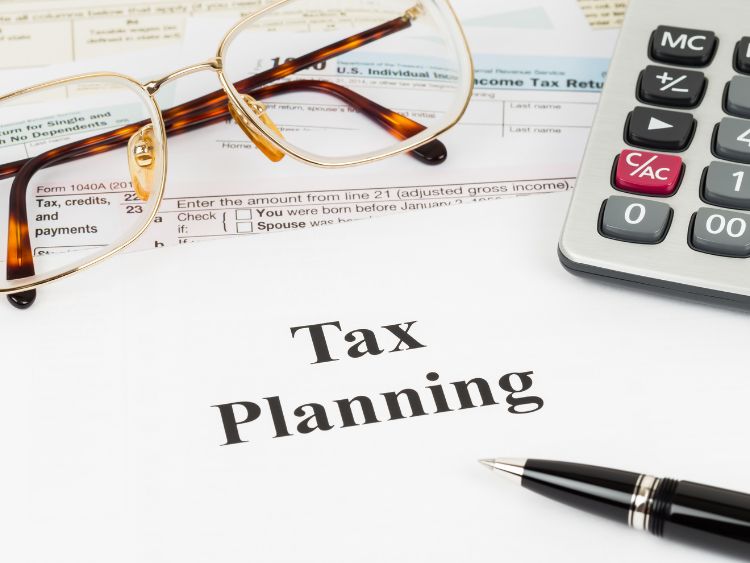Tax planning might sound a bit dry at first, but dig a little deeper, and you’ll find it’s a fascinating field with countless opportunities. Whether you’re fresh out of college or looking to switch careers, tax planning jobs can offer a stable and rewarding career. Let’s delve into what these jobs entail, the skills required, and why this field is worth considering.
What Are Tax Planning Jobs?
Tax planning jobs involve helping individuals and businesses manage their tax liabilities legally and efficiently. Professionals in this field aim to minimize the amount of taxes paid by making strategic decisions about income, expenditures, and investments. They stay up-to-date with tax laws and regulations to provide the best advice to their clients.
Key Responsibilities
- Advising Clients: Offering advice on how to structure transactions to reduce tax liability.
- Preparing Tax Returns: Ensuring accuracy and compliance with all tax laws.
- Researching Tax Laws: Keeping abreast of changes in tax legislation.
- Strategizing Investments: Advising on investment strategies that are tax-efficient.
- Auditing Financial Statements: Reviewing financial records to ensure they meet legal requirements.
Skills Required for Tax Planning Jobs
To excel in tax planning jobs, you’ll need a blend of analytical skills, attention to detail, and a solid understanding of tax laws. Here are some crucial skills:
- Analytical Thinking: The ability to analyze complex financial data and interpret tax laws.
- Attention to Detail: Ensuring all financial information is accurate and complies with regulations.
- Communication: Explaining complex tax concepts in a way that clients can understand.
- Problem-Solving: Identifying and solving potential tax issues.
- Time Management: Handling multiple clients and meeting deadlines efficiently.
Why Consider a Career in Tax Planning?
Tax planning jobs offer numerous benefits that make them an attractive career choice. Here are some reasons why you should consider this field:
Stability and Demand
Tax planning professionals are always in demand. As long as there are taxes, there will be a need for experts to help navigate them. This stability is a significant draw for many people.
Lucrative Salaries
The financial rewards in tax planning can be substantial. With experience and expertise, tax planners can command high salaries and even start their own consulting firms.
Career Growth
There are many paths to advancement in tax planning. You can start as an entry-level associate and work your way up to a senior tax advisor or even a partner in a firm. The possibilities are endless.
Intellectual Challenge
If you enjoy solving complex problems, tax planning provides a constant intellectual challenge. You’ll need to stay updated with ever-changing tax laws and find creative ways to help your clients save money.
Flexibility
Many tax planning jobs offer flexible working arrangements. Whether you prefer working in an office, remotely, or a mix of both, there are opportunities to suit your lifestyle.
Steps to Start a Career in Tax Planning
Starting a career in tax planning requires education, certification, and experience. Here’s a step-by-step guide:
1. Get a Relevant Degree
A degree in accounting, finance, or a related field is usually required. Some universities offer specialized tax programs, which can give you an edge.
2. Obtain Certifications
Certifications such as Certified Public Accountant (CPA) or Enrolled Agent (EA) can enhance your credibility and job prospects.
3. Gain Experience
Look for internships or entry-level positions in accounting firms, corporations, or government agencies. Experience is invaluable in this field.
4. Continue Education
Tax laws are always changing, so continuing education is crucial. Many professionals pursue advanced degrees or take courses to stay updated.
5. Network
Join professional organizations like the American Institute of CPAs (AICPA) or the National Association of Tax Professionals (NATP). Networking can open doors to new opportunities.
FAQs About Tax Planning Jobs
Q: What does a typical day look like for a tax planner?
A: A typical day involves reviewing financial documents, preparing tax returns, meeting with clients, and researching tax laws. It can be busy, especially during tax season.
Q: Do I need a CPA to work in tax planning?
A: While a CPA certification is highly beneficial, it is not always mandatory. However, having it can significantly boost your career prospects.
Q: Can tax planners work independently?
A: Yes, many tax planners work as consultants or start their own firms. This allows for greater flexibility and potentially higher earnings.
Q: What are the biggest challenges in tax planning?
A: Keeping up with constantly changing tax laws and ensuring compliance while maximizing tax benefits for clients are some of the biggest challenges.
Summary
Tax planning jobs offer a stable, lucrative, and intellectually stimulating career path. With the right education, certifications, and experience, you can excel in this field and enjoy a rewarding career helping others navigate the complexities of the tax system. So, if you’re detail-oriented, enjoy problem-solving, and want a career with growth potential, consider tax planning. It’s not just about crunching numbers; it’s about making a significant impact on your clients’ financial well-being.
Authoritative Links
- American Institute of CPAs (AICPA): https://www.aicpa.org
- National Association of Tax Professionals (NATP): https://www.natptax.com
- IRS Tax Information: https://www.irs.gov
- Financial Planning Association: https://www.onefpa.org
U.S. Bureau of Labor Statistics (Accountants and Auditors): https://www.bls.gov/ooh/business-and-financial/accountants-and-auditors.htm

